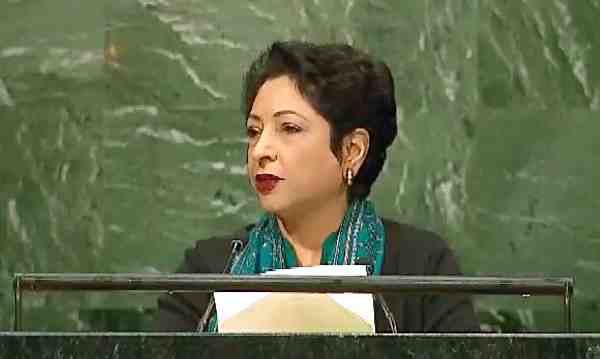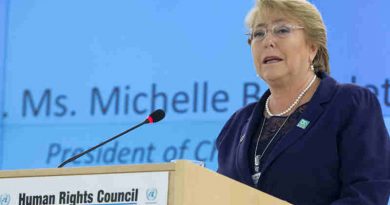Pakistan Demands Plebiscite in Kashmir and Palestine

Nearly 100 people have died and thousands injured in the conflicts between the supporters of rebel leader Burhan Wani and the Indian security forces in Kashmir.
By Rakesh Raman
Pakistan’s permanent representative to the United Nations (UN), Maleeha Lodhi, has said the UN counter-terrorism strategy must focus on addressing unresolved disputes, foreign occupations, and denial of right to self-determination as part of measures to stamp out terrorism.
Ambassador Lodhi told the UN General Assembly’s Sixth Committee that the provisions of the draft Convention (against International Terrorism) should clearly distinguish between acts of terrorism and the legitimate struggles for self-determination of peoples living under foreign occupation.
She was mainly referring to the situation in Kashmir, which is a disputed territory between India and Pakistan. India has categorically rejected the self-determination (or plebiscite) demand in Kashmir, saying that Kashmir is an integral part of India.
[ Pakistan Asks U.S. to Protect Human Rights in Kashmir ]
Kashmir has been facing a series of violent incidents since the killing of a 22-year-old rebel leader Burhan Wani by the Indian security forces on July 8 in an encounter which many believe was avoidable.
India maintained that Burhan Wani was a militant leader, but Pakistan honors him as a freedom fighter who was fighting for the people of Kashmir.
Nearly 100 people have died and thousands injured in the conflicts between the supporters of Burhan Wani and the Indian security forces in Kashmir.
[ Modi Playing Politics with Soldiers’ Blood: Rahul Gandhi ]
“While the international community agreed that human rights violations contributed to violent extremism, the killings continued in Kashmir and Palestine,” Lodhi said.
In her tweet Friday, Lodhi demanded that people of Kashmir and Palestine must be enabled to exercise their inalienable right to self-determination.
Both people of Kashmir and Palestine must be enabled to exercise their inalienable right to self determination
— Maleeha Lodhi (@LodhiMaleeha) October 7, 2016
Participating in a debate on “Measures to Eliminate International Terrorism,” the Pakistani envoy added that brutalization and oppression of people struggling for their legitimate right to self-determination constitute state terrorism.
Reaffirming Pakistan’s commitment to eliminate terrorism, Ambassador Lodhi pointed out that her country had been the principal victim of terrorism, losing more than 60,000 lives.
[ New Report Reveals Human Rights Violations in Pakistan ]
“Operation Zarb-i-Azb, deploying 200,000 of Pakistani security forces, had made remarkable progress in cleansing the country of terrorists and would conclude only when the objective has been accomplished,” she told the delegates.
Operation Zarb-i-Azb is a joint military offensive conducted by the Pakistan Armed Forces against various militant groups, including the Tehrik-i-Taliban Pakistan (TTP), the Islamic Movement of Uzbekistan, the East Turkestan Islamic Movement, Lashkar-e-Jhangvi, al-Qaeda, Jundallah and the Haqqani network.
Meanwhile, NATO has expressed its satisfaction over Pakistan’s struggle to stop terrorism. General Peter Pavel, Chairman Military Committee NATO, said last week that the scale of counter terrorism campaign by Pakistan is quite large with impressive results in this regard.
Photo courtesy: Maleeha Lodhi / Twitter





